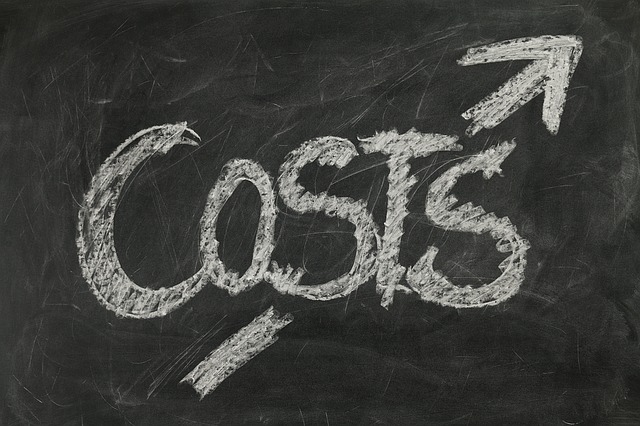What Does the Removal of Medical Debts from Credit Reports Mean?
In March 2022, three of the largest credit reporting bureaus, Equifax, Experian, and Transunion announced that they would remove medical bills from the credit reports of U.S. citizens. This is undoubtedly great news for millions of Americans, but how will it affect credit scores, and who will benefit from it?
The Situation Before Changes
Approximately 23 million people in the United States currently have medical debts amounting to nearly $88 billion. This number increased following the outbreak of the COVID-19 pandemic as many people were forced to take loans for emergency care. However, because of the rise in unemployment, many failed to repay these loans on time.
When a borrower fails to repay a medical debt 60 to 120 days after it’s due, the debt is usually sent to a collection agency. In some cases, credit bureaus give a 180-day grace period to negotiate with the insurance or collection agency before adding it to credit reports.
Having a debt sent to collections can significantly harm your credit score. In fact, the higher your credit score is, the more it will hurt you. Even though medical debts are treated less harshly than other late bills, its effect on your credit history may make it tougher to apply for other loans in the future.
Despite paying back a medical debt on time, it typically stays on your credit report for seven years. This means that your late repayment will be visible to anyone who performs a hard credit check on you, thus potentially reducing your chances of approval.
How Will This Affect Your Credit Score?
 Starting July 1, medical bills that were transferred to collections and paid off will no longer appear on your credit report. If you pay back your debt after it has been sent to collections, it will automatically be removed from your credit report without waiting seven years. The agencies have also extended the grace period from 180 days to one year, giving consumers more time to negotiate with their insurance or healthcare providers.
Starting July 1, medical bills that were transferred to collections and paid off will no longer appear on your credit report. If you pay back your debt after it has been sent to collections, it will automatically be removed from your credit report without waiting seven years. The agencies have also extended the grace period from 180 days to one year, giving consumers more time to negotiate with their insurance or healthcare providers.
According to the CFPB, most medical debts are below $500. The three credit bureaus also announced that from the first half of 2023, medical bills of less than $500 will no longer be recorded in borrowers’ credit reports. This means that many people may avoid an immediate drop in their credit scores.
How High Can Your Credit Score Go?
With the old reporting system, paying off medical debt from collections would not automatically increase your credit score as the account would still stay in your credit report. However, if you managed to delete a collection from your credit report, you could see your credit score go up.
Following the automatic removal of medical bills, how much your credit score will increase depends on the number of other debts you have in collections. If it’s the only debt in your collections, you may see your credit score rise by 150 points. However, if you have five other outstanding debts in your collections, removing a single debt may not increase your credit score.
Who Will Benefit from It Most?
Equifax, TransUnion, and Experian predict that nearly 70% of all medical debts will be removed from credit reports. African American and Hispanic consumers, households with children under 18 years of age, and individuals with a degree lower than a bachelor’s are more likely to benefit from the upcoming changes. This is because these groups are more likely to have medical debts under $500.
On the other hand, the impact of the reforms may not necessarily be significant for other debtors. According to Chi Chi Wu, staff attorney at the National Consumer Law Center, people with chronic illnesses, severe injuries, or little to no insurance are unlikely to benefit from the new reforms.
What New Financial Products Would Be Available to You?
If you want to borrow money, you may have access to lower interest fees if your credit score improves. A wider range of lenders and financial products may also be available to you. These are some of the products that require you to have a high credit score:
- Federally backed mortgages. These are mortgages that are usually secured by an agency or the government. If a borrower fails to repay the loan, the government or the federal agency guarantees to pay back lenders what they’re owed. Most lenders typically require a credit score of 640 and higher to qualify for a government-backed mortgage.
- Personal loans. Your credit score plays a crucial role in getting approved for a personal loan. Many lenders may offer loans with an 11.2% to 15.5% APR if your credit score is above 690, compared to an average APR of 25.3% for credit scores lower than 690.
- Private student loans. Most private lenders require applicants to have a credit score of at least 670 to qualify for a student loan. The higher your credit score is, the more likely you can receive a low-interest student loan from a private lender.
Bottom Line
To sum up, many Americans will benefit from the new credit reporting reforms on medical bills. Many people’s credit scores are expected to increase as their medical debts will be wiped off their credit reports, opening many doors to apply for other financial products. However, those who have other unpaid debts in their collections will most likely not be impacted by these new developments.





